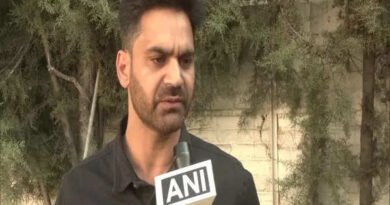Cycle of False Promises: How Politicians Exploit Voters for Power
Tariq Bhat
Fake promises made by politicians are a recurring theme during elections. Some politicians promise 300 units of free power, others raise it to 500 units, and some go as far as offering completely free electricity. The question is: how can a political party promise completely free power supply? It’s an even bigger joke.
Ironically, there are people who, despite the blatant insincerity, still cheer, “Our leader, long live!” It’s disheartening that these politicians continue to make the same promises they have been making for the last two decades, yet many voters fail to recognize this pattern. Before voting, it’s crucial to think carefully about who you support.
The political system in our country has been plagued by fake promises, particularly during election campaigns. Politicians often manipulate voters by offering them money or gifts in exchange for their support, which ultimately hinders the country’s development for short-term gains. This strategy of buying votes undermines the integrity of our democracy and delays meaningful progress.
False Promises as a Political Weapon ,Politicians use false promises as a weapon to mobilize large numbers of people to their side, simply to win elections. They claim to act in the public interest, but once elected, their focus shifts to personal gain, often accumulating wealth through corrupt practices. After five years, they return to voters with the same empty promises, hoping the cycle of deception will continue.
Some politicians go even further, making promises that are impossible to fulfill within the current political framework. For instance, some claim they will repeal the Public Safety Act (PSA), despite lacking the necessary authority in a Union Territory. Others vow to restore Article 370, even though such changes are beyond their legislative power. These are just a few examples of how politicians use unrealistic promises to mislead the public.
Why Do Politicians Lie? The primary reason behind these false promises is to gain votes. Politicians understand that populist measures and grandiose promises resonate with voters, even if they are unachievable. However, there are deeper motivations as well. Some politicians make these promises to maintain their power, secure financial gains, and keep their party in control.
It is essential for voters to scrutinize the promises made by politicians and question their feasibility. A well-informed electorate is the best defense against the manipulation and deceit that have become all too common in politics. Before casting your vote, take a moment to reflect on the candidate’s track record, the realism of their promises, and their commitment to the public good.
The cycle of false promises and deceit in politics is a serious issue that undermines trust in the democratic process. Voters must hold politicians accountable, demand transparency, and prioritize candidates who offer realistic and achievable plans for development. Only then can we hope to break free from the cycle of manipulation and move towards a more honest and effective political system.




